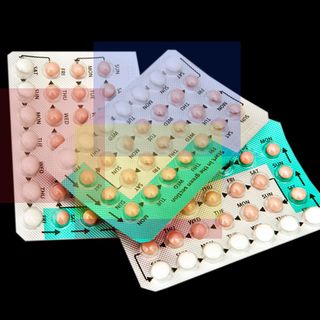Researchers have identified a link between high levels of estrogen in the womb of pregnant women and the chances of a fetus developing autism. This study, published in Molecular Psychiatry, adds further to the prenatal sex steroid theory of autism, which posits that steroid sex hormones — androgens may be responsible for autism.
Prenatal sex steroid hormones influence gender traits and reproductive activity. Commonly known sex steroid hormones are androgens, which influence male traits, and estrogens, which influence female traits. An example of an androgen is the primary male sex hormone – testosterone, and estrogen is both a primary female sex hormone and a class of hormones.
In 2015, A team of scientists from the University of Cambridge and the State Serum Institute in Denmark measured the levels of four prenatal steroid hormones, including two androgens, in the amniotic fluid of 275 wombs. They discovered androgen levels were higher than average in 98 male fetuses who later developed autism.
Related on The Swaddle:
A Peek Into How Kids With Autism Experience Social Situations
Now, the same scientists utilized the same 98 amniotic fluid samples from the Danish Biobank to test for another set of prenatal steroid sex hormones — estrogens. They found that all four estrogen hormones were also significantly elevated in the fetuses that developed autism. High levels of prenatal estrogens were even more predictive of autism than high levels of prenatal androgens. However, the cause for high levels of prenatal sex steroid hormones is still unknown.
“This new finding supports the idea that increased prenatal sex steroid hormones are one of the potential causes of the condition. Genetics is well established as another, and these hormones likely interact with genetic factors to affect the developing fetal brain,” said Simon Baron-Cohen, lead author of the study. Baron-Cohen was also the person who had proposed the initial prenatal sex steroid theory of autism in 1997.
However, the team does not want their discovery to be used as a screening process for autism. “We are interested in understanding autism, not preventing it,” added Baron- Cohen. This is a vital distinction, as autism is often called a disorder, rather than a normal form of neurodiversity. Hans Asperger, who first discovered autism, stated in his first public talk about the condition that the gifts possessed by the people he was then treating were inextricable from their challenges. While Asperger was mainly trying to save his patients from sure death in Nazi-occupied Austria, he was also making a strong case for autism being normal.
“Species diversify via genetic change all the time; when those changes are positive they are passed to the next generation. Autism is an example of natural variation. Current estimates are that 1 in 100 people are on the autistic spectrum: that translates to around 641,000 people in Britain. If autism were truly a disease, something of detriment, why do autistic variants of genes perpetuate?” wrote Nikki Stevenson, Chairman of Autistic Nottingham and East Midlands, for The Guardian. Amid a vehement drive to take away life-saving immunization to avoid autism, normalizing neurodivergence, its challenges and the brilliance that often emerges from it remains extremely important.




